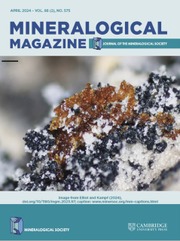
Graham Chinner. Photograph courtesy of Trinity College, Cambridge.
Graham Chinner is remembered by colleagues and past students for his friendly helpfulness as much as his penetrating insight into processes of metamorphism of rocks in the complicated scenario of mountain building.
Graham came to Cambridge as a graduate student in 1955 and, after a spell in the Carnegie Institution of Washington where he undertook experimental petrology on the stability of garnets, returned as researcher and lecturer at Cambridge. He was a fellow at Trinity College, with spells as Dean and as Senior tutor. Graham's mild and self-effacing nature hid a research mind that was very much ahead of its time, with some of his achievements legendary in scope – such as his pioneering work on the nature of oxidation and reduction in metamorphism of pelitic schists in Glen Clova, Scotland. He set the bar very high in his scholarship with a challenge to all who follow in his field.
Graham was also an entertaining teacher, peppering his undergraduate courses in mineralogy and petrology with amusing anecdotes and witty allusions to current affairs. He will be remembered for his renderings of swathes of Shakespeare in the most unlikely situations. He was also a superb illustrator and calligrapher, adorning his lecture material and handouts with beautiful thin-section drawings alongside small amusing cartoons, and all done with flourishing italic and copperplate writing. Fine examples of his thin-section drawings may be found in the book Petrology for Students (Nockolds, Knox & Chinner, C.U.P 1978), and his acute observational skills have inspired a generation of students in petrology. He will be remembered fondly by all who had the privilege of knowing him.


